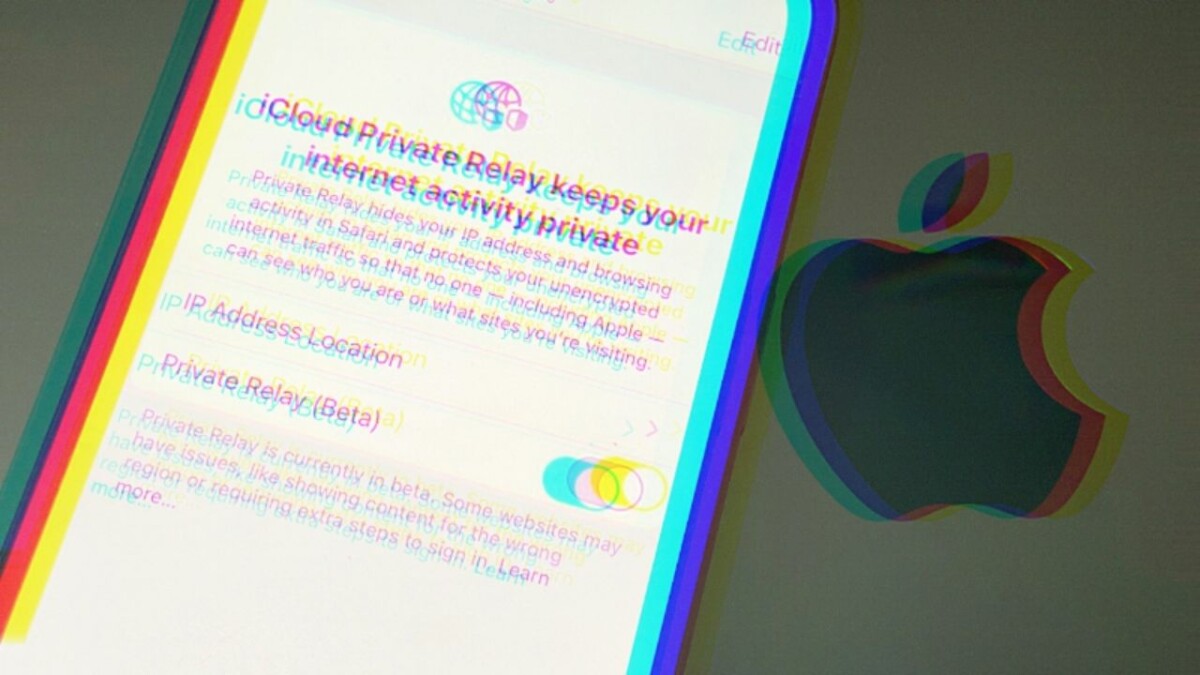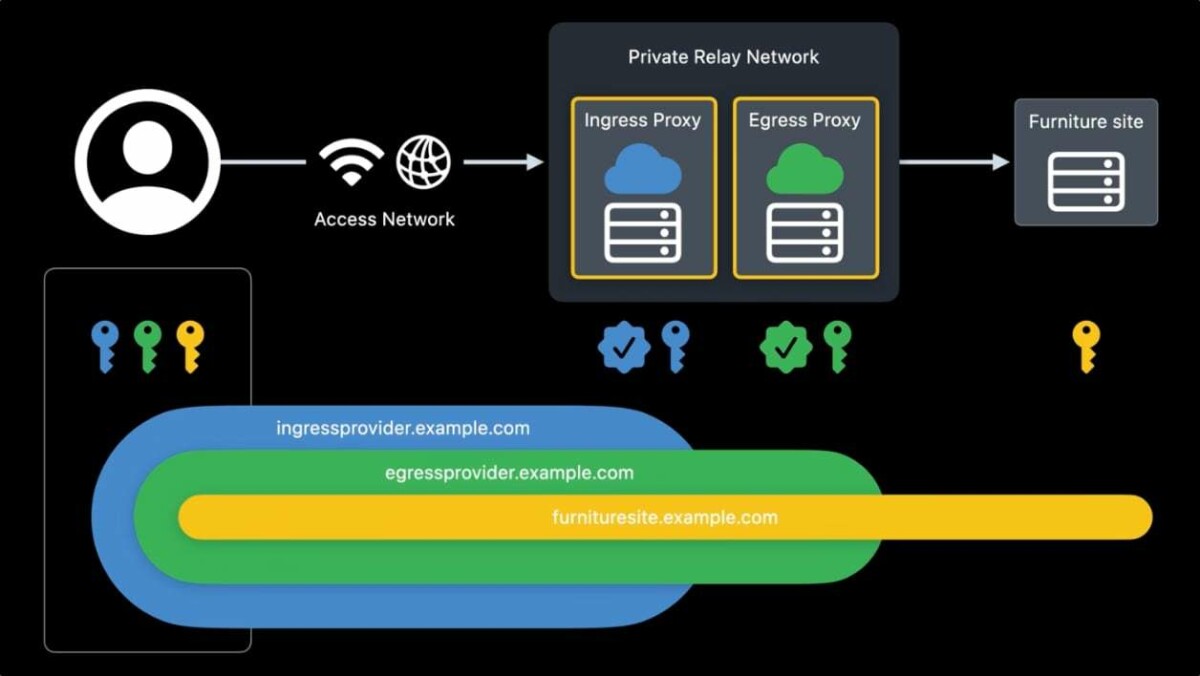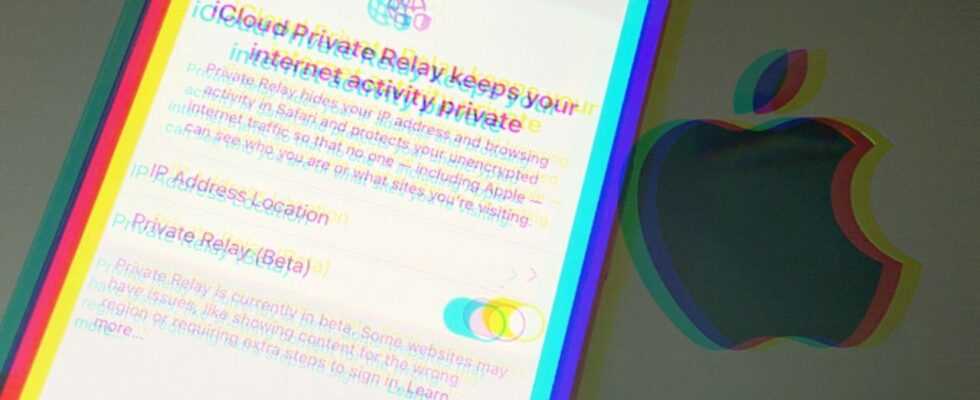This is a new battle launched by European and American mobile operators: they want to block “iCloud private relay”. This new feature prevents them from properly analyzing their users’ traffic, which is not to the liking of the large global telecommunications operators.

The American and European mobile operators want to block the “iCloud private relay”, available with any subscription to iCloud + and introduced since iOS 15 and macOS Monterey.
What is “iCloud Private Relay”?
If you’ve downloaded iOS 15, you might have noticed something different about your iCloud account. This is because Apple has updated all paid iCloud accounts (Apple One plan) to something called iCloud +. This includes several cool new features in addition to the existing storage, sync, and cloud features, but the most amazing is “iCloud Private Relay” (iCloud Private Relay in English). You could compare it to a VPN … but that would be wrong. Why ?
With “iCloud Private Relay”, your browsing traffic is encrypted and sent via a relay to hide your exact location, your IP or the content of your browsing traffic. All your browsing activity in Safari is therefore routed through two relays.
Your data is encrypted and then sent to Apple, so your internet service provider cannot see any of your web browsing requests. Once on Apple’s proxy server, the DNS query (which points a domain name like “frandroid.com” to a specific server IP address) and your iPhone, iPad, or Mac’s IP address are separated.

How iCloud Private Relay works // Source: Apple
Your IP address is held by Apple, while your DNS query is forwarded, encrypted, to a “trusted partner” who has the decryption key, along with a fake intermediate IP address based on your approximate location. Apple did not name its partners, but they are arguably large companies such as Akamai, Cloudfare and Fastly.
This means that Apple knows your IP address but not the name of the sites you are visiting, and the trusted partner knows the site you are visiting but not your IP. Neither can piece together a complete picture of who you are and where you are going. The point is that the websites you visit ignore this information completely, so they cannot create profiles of your activity.
There is one important difference with a VPN: “iCloud Private Relay” doesn’t mask who you are, it gives a fuzzy version of you. You are still identified in such and such a region, so you will have access to the French Netflix catalog from France, but the data is approximate. This prevents websites from creating an accurate advertising profile. Finally, this only concerns the Safari browser for the moment.
Why is this bothering mobile operators?
The information was relayed by The Telegraph, then taken up on MacG, the mobile operators Orange, Vodafone, Telefonica and T-Mobile want to force Apple to deactivate this new function. They sent a letter in August to the European Commission to this effect.
“Private relay claims to improve the privacy of users when they connect and browse the internet by encrypting and redirecting their traffic. […] This prevents other networks and servers from accessing vital data and metadata, including that of the operators in charge of the connection (…) The way in which private relay is implemented will seriously undermine European digital sovereignty . “
A priori, “iCloud private relay” goes against many important areas of operators, in particular on data collection for quality of service measures and legal obligations to block sites. It is also a way to limit the advertising revenue of mobile operators, since targeting data is important in for this type of revenue.
T-Mobile and Sprint, two American mobile operators, have gold and have already blocked the function with their customers. Mobile operators have the option of deactivating it, a warning message then appears on the iPhone.
To follow us, we invite you to download our Android and iOS application. You will be able to read our articles, files, and watch our latest YouTube videos.
